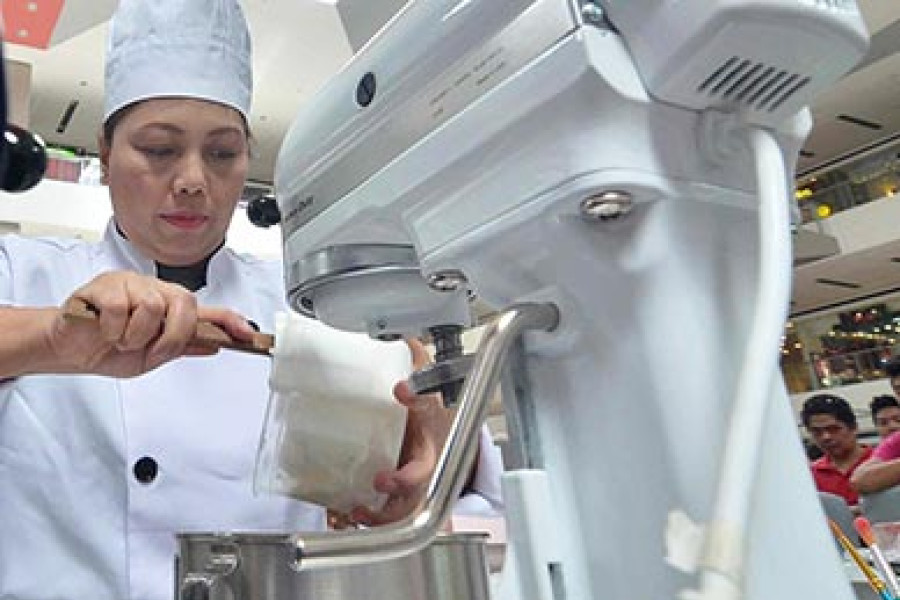Universidad de Santiago de Chile made a significant contribution to Expo Food Process 2015, a technical and business platform that brought together different productive sectors related to food industry, facilitating the access to new technologies and solutions in different production processes.
Universidad de Santiago de Chile had an outstanding participation in Expo Food Process 2015, a technical and business platform that brought together different productive sectors related to food industry, facilitating the access to new technologies and solutions in different production processes.The activity was held at Espacio Riesco, Santiago, between November 04th and 06th. Researchers at the Food Science and Technology Research Center (Cecta), the Department of Food Science and Technology, and the Department of Chemical Engineering of our university participated at the exhibition and led two specialized seminars. One of them was focused on biotechnological research and development for the food and beverages sector, and the other, on food packaging.The university delegation was led by Dr Oscar Bustos Castillo, Vice President of Research, Development and Innovation. He told the attendees that Universidad de Santiago has strongly been related to the development of the country since its beginnings, what has led it to incorporate new lines of work.“Today, our society is more aware of improving its quality of life by means of healthy food; therefore, the university considers the food sector a priority area,” he explained.The scientific productivity in this field of research concentrates 10% of the total number of publications of the university and the 17% of the projects awarded funds from different sources.Research with impactMany researchers at Universidad de Santiago participated in the two seminars.During the first day, Dr Laura Almendares gave the presentation “Generación de Productos Innovativos para la Empresa Alimentaria” (Generating innovative products for Food Industry) and Dr Julio Romero presented his work “Tecnología de membranas y solventes alternativos: ejemplos de transferencia y adaptación tecnológica” (Technology of membranes and alternative solvents: examples of technological adaptation and transfer).Dr Claudio Martínez, Cecta’s director, presented his work “Mejoramiento del vino a través de la microbiología, una tecnología aplicable a otras bebidas fermentadas” (Improving wine production through microbiology: a technology that can be applied to other fermented drinks), and Raúl Ciudad, member of the I+D Committee of the Social- Business Development Council of Universidad de Santiago, gave the presentation “Desafíos I+D+i Universidad-Empresa” (University-Business I+D+i Challenges).Gonzalo Jordán, Executive Chairman of CORFO’s Food Strategic Program gave the presentation “La Especialización Inteligente de la Industria Alimentaria: Nuevos Espacios de Competitividad” (Smart specialization in Food Industry: new spaces for competitiveness).On Friday 06th, Dr Abel Guarda Moraga gave his presentation “Envases de Alimentos. Requerimientos y Necesidad de desarrollo” (Food packaging. Requirements and need for development, and Dr María José Galotto, “Innovación en el área de envases de alimentos. La nanotecnología como herramienta para el desarrollo” (Innovation in food packaging. nanotechnology as a development tool).For his part, Dr Francisco Rodríguez talked about “Envases para productos hortofrutícolas” (Packaging for fruit and vegetables) and Dr Julio Bruna, about “Envases y Biodegradabilidad: Realidades y Mitos” (Packaging and biodegradability: myths and facts). Finally, Dr Alejandra Torres closed the presentations with “Requerimientos de Innocuidad en envases plásticos para alimentos” (Innocuousness requirements for plastic food packaging).Translated by Marcela Contreras


